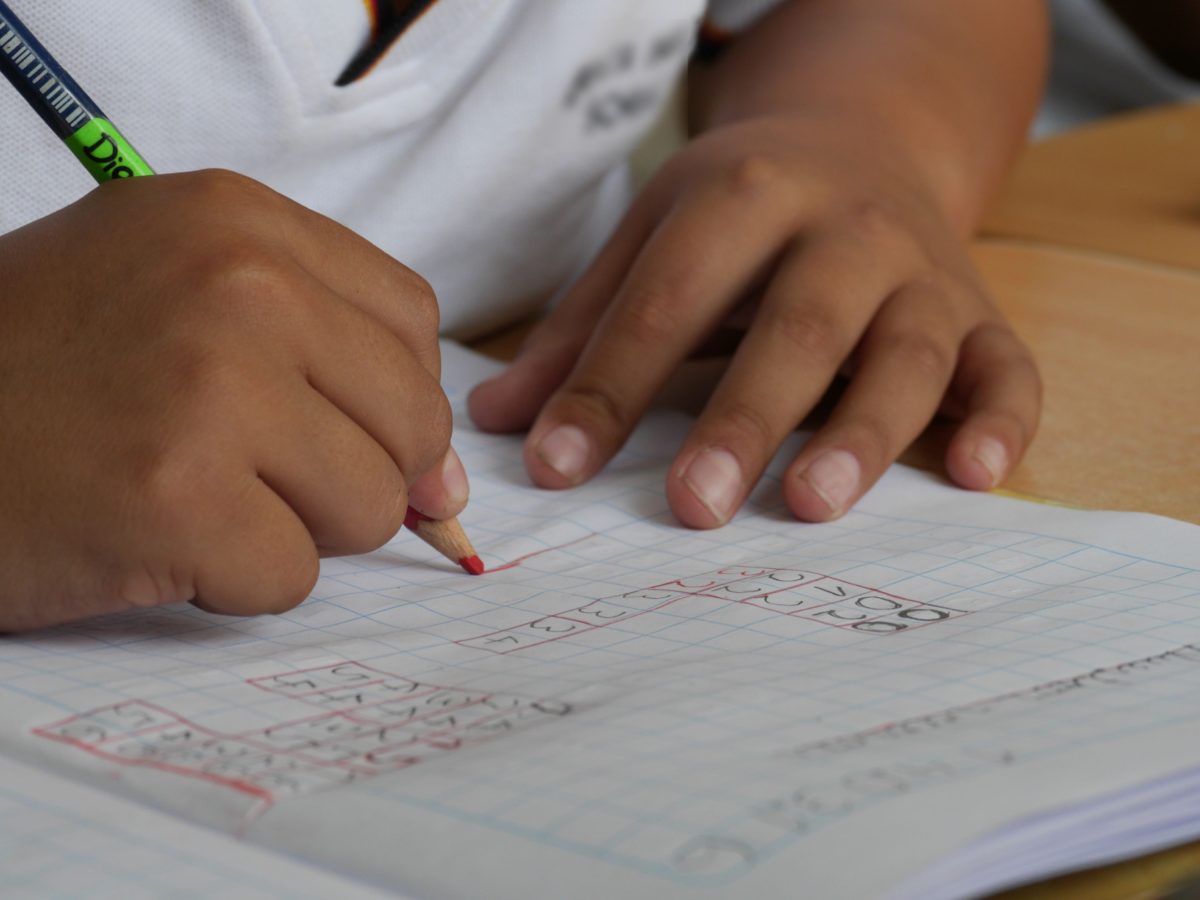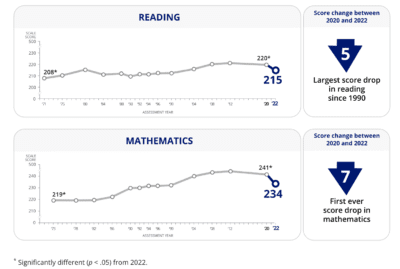

U.S. Secretary of Education Miguel Cardona contributed to headline hyperventilation in characterizing the NAEP results for 2022 as “appalling, unacceptable.” The test-scores decline is indeed sobering, and yet it is a clanging call not for handwringing but for serious school-improvement work ahead in North Carolina and across the nation.
When schools shifted from in-person to online instruction as the COVID-19 pandemic hit in the spring of 2020, educators demonstrated their professionalism by rallying to keep schooling going. Still, the public health crisis spawned an economic crisis and imposed a loss of learning and play time on children from pre-K through high school.
The learning loss documented by the NAEP, known as the nation’s report card, swept across the nation. Differences among the 50 states, whether red states or blue states, were modest, insufficient to support scoring political points.
In North Carolina and elsewhere, the pandemic’s blow to student achievement came in the context of an earlier jolt. North Carolina, hard hit amid an economic transition, had recovered agonizing slowly from the Great Recession of 2008-09.
The pre-pandemic decade was marked by a bifurcated economy with expansion in both high-wage and low-wage jobs. The decade saw further separation in prospects between fast-growing metropolitan areas and distressed rural communities. It was also a decade of hyper-partisanship, with a shift in political winds that led to a nationwide slow down in spending on public education.
Thus, the pandemic intensified educational deficiencies and gaps already evident. The scores of low-income, Black, and Hispanic students fell disproportionately. Overall, as captured by a headline in The News and Observer, “Two decades of gains were lost.”
Let’s reflect on that headline: it speaks both loss and gains. And to reflect, let’s look at evidence from the NAEP’s North Carolina page.
In fourth grade math, North Carolina scored higher than the national public school average from 2000 to 2015. The state matched the national average from 2017 to 2022. In fourth grade reading, North Carolina matched the national average from 1994 to 2022, with the exception of four test years when it exceeded the national average.
In eighth grade math from 2000 to 2022, North Carolina scored higher than the nation eight times, matched the nation five times. North Carolina had a softer performance in eighth grade reading, matching the national average nine times, falling below six times, over two decades.
During this period, North Carolina updated its mathematics standards prior to the 2005–06 school year and its English language arts standards prior to 2007–08. Both were updated again for 2013–14.
As educators, policymakers, and parents ponder the NAEP findings, the question confronting North Carolina is whether it will regain its commitment and momentum toward making gains. Recovery won’t come easily or on the cheap.
And yet, North Carolina, now the ninth most populous state ranked at the top for business, has the capacity to support robust public education systems. Recovery and advancement will require an array of initiatives and investments: closing the divide in access to the internet, expanding tutoring and student support services, and reemphasizing early care and education. The time is also at hand to move toward more in-class days in the school year and an hour or more in the school day.
In his reaction to the NAEP scores, Javaid Siddiqi, president of the North Carolina-based Hunt Institute, made two important points: to move forward, rather than replay arguments over the pandemic, and to strengthen the connections of families and communities to their schools.
“This is a time to review the lessons we have learned over the last two and a half years that must guide our actions moving forward,” he said, “such as the clear need to engage parents and promote transparency when making decisions about our schools and districts.”
At its outset, it was clear that the pandemic caused a crisis that should not go to waste. Now that North Carolina explores its own response to the “appalling, unacceptable” test scores, the state still faces a crisis not to be wasted in transforming schools to meet the economic and democratic demands of the times.




